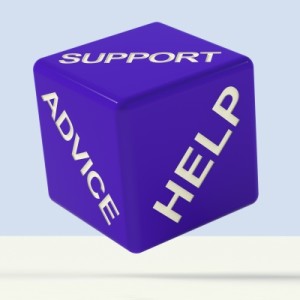 Do you struggle with social anxiety?
Do you struggle with social anxiety?
Do you find it difficult to connect with people on a personal level in social settings?
Are you sick and tired of feeling uncomfortable at parties?
Did you know there’s food you can eat to relieve social anxiety?
It’s true, according to a research study to be published in the August issue of Psychiatry Research. Researchers at the University of Maryland and Virginia’s College of William and Mary have found that certain microorganisms in fermented foods actually increase the production of gamma-aminobutyric acid (GABA), a neurotransmitter that counterbalances other neurotransmitters involved with anxiety disorders.
 “It is likely that the probiotics in the fermented foods are favorably changing the environment in the gut, and changes in the gut in turn influence social anxiety,” said Matthew Hilimire, assistant professor of psychology at William & Mary. “I think that it is absolutely fascinating that the microorganisms in your gut can influence your mind.”
“It is likely that the probiotics in the fermented foods are favorably changing the environment in the gut, and changes in the gut in turn influence social anxiety,” said Matthew Hilimire, assistant professor of psychology at William & Mary. “I think that it is absolutely fascinating that the microorganisms in your gut can influence your mind.”
It’s all about how the gut and the brain interact.
Hillmire and his colleagues developed a questionnaire that asked more than 700 William & Mary students about fermented food consumption, neuroticism, and social anxiety. Participants were asked to indicate if, in the last 30 days, and how much they had eaten of certain foods, including:
- Yogurt
- Kefir or food or drinks that contain yogurt
- Soy milk
- Miso soup
- Sauerkraut
- Dark chocolate
- Juices that contain microalgae
- Pickles
- Tempeh
- Kimchi
What the researchers found is a striking correlation between the amount of good bacteria in the respondents’ gut, and the levels of anxiety in their brains. Those William & Mary students who ate more, and more servings of these probiotic-laden foods were less likely to report social anxiety symptoms such as sweaty palms or racing hearts. Fermented food consumption also had an interesting effect on those students who reported high degrees of neuroticism: The more fermented foods they ate, the fewer their symptoms of social anxiety became.
Probiotics have previously been proven to inhibit anxiety…
But this conversation is the first in regards to social anxiety, specifically.
“Probiotics have also been shown to modify the body’s response to stress, and stress response is highly linked to mental health disorders, such as social anxiety,” Hillmire noted. “In addition, consumption of fermented milk has been shown to reduce the brain’s response to negative facial expressions. By reducing the brain’s response to negative social stimuli, social anxiety symptoms might be reduced.”
Call 202-629-1949


 There’s no better way to
There’s no better way to  All day, every day:
All day, every day:
 When someone mentions ‘the city that never sleeps’, you think of New York City, right? Of course you do. A nickname coined, and made famous by the Martin Scorsese film New York, New York (and with a little help from Frank Sinatra), it’s one that could just as easily be used to describe, well, the world these days. Everywhere I turn, there are lights flashing, and sounds sounding; and everyone is rushing.
When someone mentions ‘the city that never sleeps’, you think of New York City, right? Of course you do. A nickname coined, and made famous by the Martin Scorsese film New York, New York (and with a little help from Frank Sinatra), it’s one that could just as easily be used to describe, well, the world these days. Everywhere I turn, there are lights flashing, and sounds sounding; and everyone is rushing.



